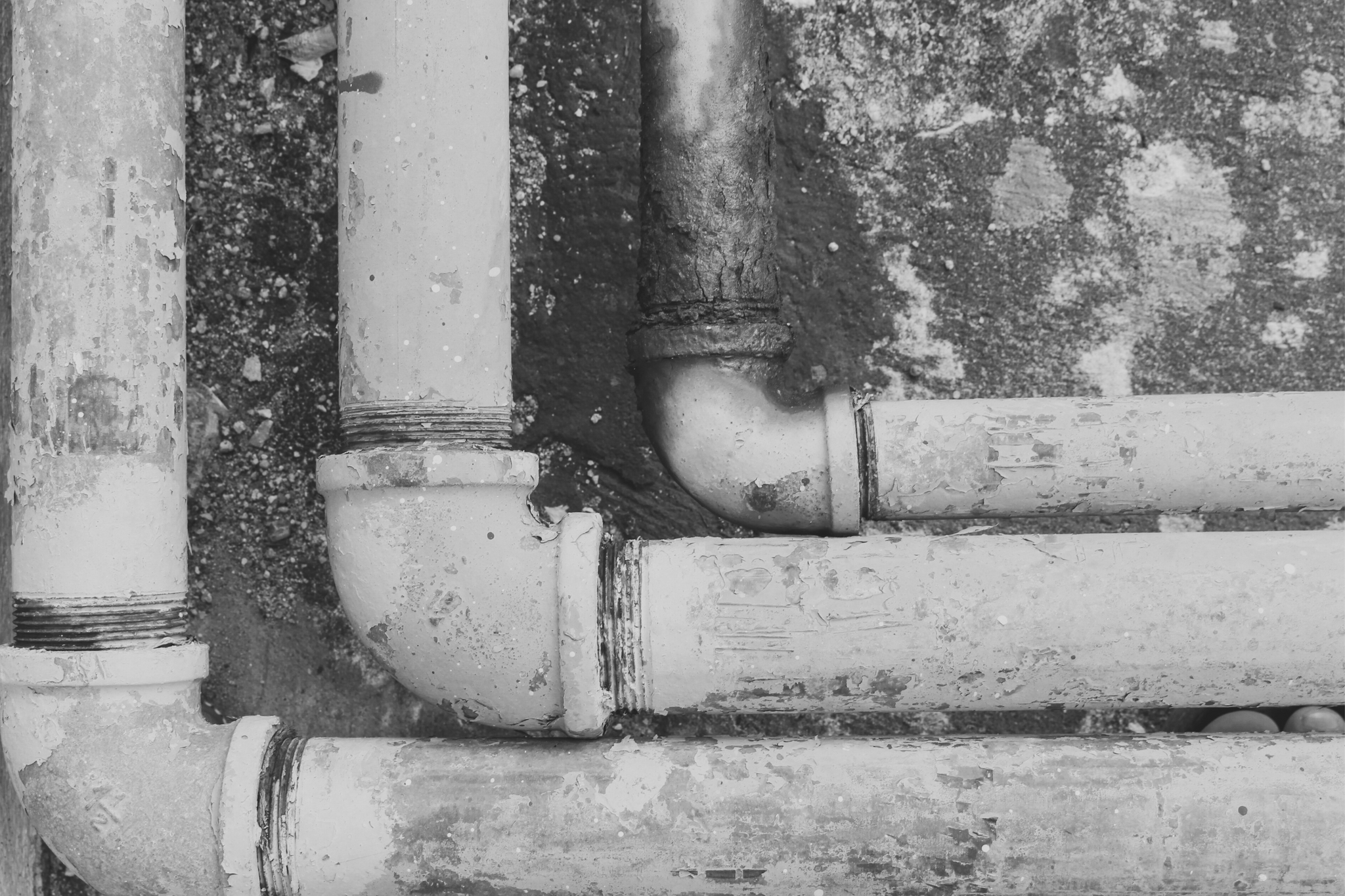
How Harsh Chemicals Impact Your Plumbing Over Time
Mainstream drain cleaners might seem like a quick fix for clogs, but long-term use of chemical drain cleaners can lead to serious plumbing damage and costly repairs. Understanding these impacts helps make informed decisions about drain maintenance and protection of your plumbing system.
The Hidden Damage of Chemical Cleaners
Many mainstream cleaners use powerful acids or bases to dissolve blockages, which usually get your water flowing again in the immediate-term. However, the intense chemical reactions they trigger generate heat, and that heat can slowly weaken your pipes over time.
The worst part? This damage happens out of sight, making it easy to overlook until you’re faced with a serious (and expensive) plumbing issue.
Different pipe materials react to these chemicals in different ways, and none of them are good.
For PVC pipes, the high temperatures can cause softening or warping, reducing their durability with each use. For metal pipes, the problem is even more severe: the corrosive nature of the chemicals eats away at the pipe walls, creating weak points that can eventually lead to leaks or even a total failure of the pipe.
The damage isn’t immediate, but it’s cumulative. Every time you pour chemical cleaner down the drain, you’re chipping away at the integrity of your plumbing system.
Understanding the Chemical Process
Most chemical cleaners work through oxidation or reduction reactions. These powerful chemical processes don't just target clogs - they affect everything they touch. When poured down a drain, these cleaners often sit in pipes for extended periods, especially if the clog prevents proper flow. During this time, they continuously react with pipe materials, causing gradual deterioration.
The heat generated during these chemical reactions can exceed 200 degrees Fahrenheit. This temperature surge creates additional stress on pipes, particularly at joints and connections. Over time, these stressed areas become prime spots for leaks and breaks.
Impact on Your Entire Plumbing System
The damage extends beyond the immediate area of application. Chemical residues can travel through your plumbing system, affecting:
- Pipe Joints: The connections between pipes often trap chemical residue, leading to accelerated wear at these crucial points.
- Seals and Gaskets: Rubber components deteriorate faster when exposed to harsh chemicals, creating potential leak points throughout the system.
- Septic Systems: Beneficial bacteria in septic tanks die when exposed to these chemicals, disrupting proper waste breakdown.
- Municipal Systems: When chemical cleaners enter public sewer systems, they contribute to infrastructure deterioration and environmental problems.
Signs of Chemical Damage
Early detection of chemical damage can prevent catastrophic failures. Warning signs include:
- Slow drains that worsen over time indicate pipe walls may have accumulated chemical residue and damage.
- Discolored water, particularly with a metallic taste, suggests pipe corrosion.
- Frequent clogs might mean damaged pipes are collecting debris more easily.
- Unusual sounds in your plumbing system could signal structural problems in pipes.
Long-term Financial Impact
The cost of chemical drain cleaner damage adds up quickly. Initial savings from avoiding professional plumbing services disappear when pipes require premature replacement. A single pipe replacement can cost thousands of dollars, especially if walls or floors need removal to access damaged sections.
Insurance companies might deny claims for damage caused by chemical cleaners, leaving property owners responsible for repair costs. Regular use of these products can void warranties on plumbing fixtures and pipes.
Safe Alternatives for Drain Maintenance
Maintaining clear drains doesn't require harsh chemicals. We've published a complete guide to preventing drain clogs here on our blog, which focuses on regular maintenance and preventative measures that you can take to help avoid harsh chemical cleaners entirely. This includes regular maintenance with natural solutions that prevent most clogs while protecting your plumbing system and simple practices like using drain strainers prevent debris accumulation or regular cleaning with hot water which helps maintain good flow.
Professional Assessment and Repair
If you've used chemical cleaners in the past, consider a professional plumbing inspection. Modern inspection techniques use cameras to assess pipe condition, identifying damage before it leads to failures. Early intervention can extend pipe life and prevent emergency situations.
Protecting Your Investment
Your plumbing system represents a significant investment in your property. Protecting it from chemical damage helps maintain property value and prevents costly repairs. Creating a maintenance plan that avoids harsh chemicals while addressing drain issues promptly provides the best long-term solution for plumbing health.
Remember that temporary solutions often lead to permanent problems. Taking care of your plumbing system with appropriate methods and materials ensures its longevity and reliable performance for years to come.
